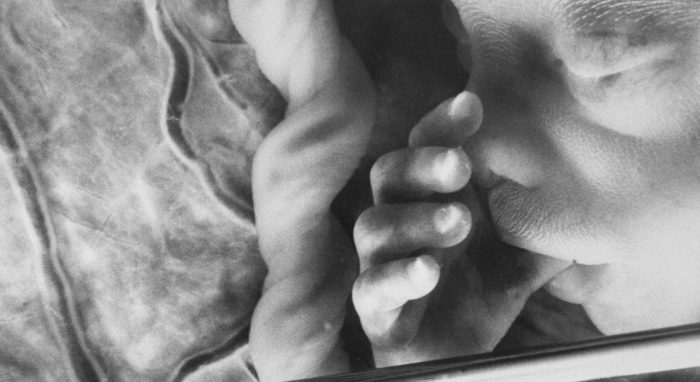Arkansans for Limited Government has gathered enough signatures to place a pro-abortion constitutional amendment on the state’s upcoming November ballot. In a recent interview, abortionist Dina Epstein, who volunteers with the pro-abortion organization, claimed the amendment is necessary because the state’s current pro-life law is causing ‘fear’ and ‘heartbreak,’ and causing doctors to send women out of state for supposedly ‘medically necessary’ abortions. But the state’s pro-life Unborn Child Protection Act has an exception that allows for abortion to “save the life of a pregnant woman in a medical emergency.”
The pro-abortion amendment that Epstein is promoting in Arkansas has a broader “physical health” exception for the woman.
That amendment would, as Live Action News previously noted, “set in place unrestricted abortion up to 18 weeks after fertilization (20 weeks gestation) in the state, or in cases of rape, incest, fatal fetal anomaly, or ‘when abortion is needed to protect the pregnant woman’s life or physical health'” after 20 weeks.
It’s not really about saving the mother’s life
Epstein claimed, “It has been challenging and scary and heartbreaking [to be an OB/GYN under the state’s pro-life law], honestly. Before Roe v. Wade was overturned, there were, of course, restrictions in the state of Arkansas as it was, but we were not prevented from doing our jobs properly. And since it was overturned, that has not been the case.”
This is misleading. Prior to the overturning of Roe, Arkansas allowed abortion to save the life of the mother, and it still does.
Arkansas’ Unborn Child Protection Act states, “A person shall not purposely perform or attempt to perform an abortion except to save the life of a pregnant woman in a medical emergency.” It also says that it “is an affirmative defense to prosecution under this section if a licensed physician provides medical treatment to a pregnant woman which results in the accidental or unintentional physical injury or death to the unborn child.” (emphasis added)
The words “accidental” and “unintentional” are key, because induced abortion — which is what pro-life laws restrict — is an act that directly, purposefully, and intentionally causes the child’s death. It is legal under state law for a doctor to treat a pregnant woman, even if that treatment (such as treatment for ectopic pregnancy or infection) unintentionally causes the child’s death. The doctor would simply need to provide evidence that the treatment was medically necessary and that the child’s death was not the intent — even if the mother’s condition was not imminently life-threatening.
The originally proposed pro-abortion amendment stated (emphasis added):
The government of the State of Arkansas, its officers, or its political subdivisions shall not prohibit, penalize, delay, or restrict access to abortion within 18 weeks of conception [20 weeks gestation] or in cases of rape, incest, in the event of a fatal fetal anomaly, or when abortion is needed to protect the pregnant female’s life or health.”
This was later amended and certified by the Arkansas attorney general’s office, to read, more specifically (emphasis added):
… [T]he government of the State of Arkansas, its officers, or its political subdivisions shall not prohibit, penalize, delay, or restrict abortion services (1) in cases of rape, (2) in cases of incest, (3) in the event of a fatal fetal anomaly, or (4) when, in a physician’s good-faith medical judgment, abortion services are needed to protect a pregnant female’s life or to protect a pregnant female from a physical disorder, physical illness, or physical injury; to provide that the government of the State of Arkansas, its officers, or its political subdivisions shall not prohibit, penalize, delay, or restrict abortion services within 18 weeks of fertilization, which equates to approximately 20 weeks since the first day of the pregnant female’s last menstrual period…
While allowing abortion for any reason up to 18 weeks post-fertilization (20 weeks gestation, which is mid-second trimester), the revised amendment also states that it will “define ‘abortion services’ as medical interventions provided to a pregnant female to end the medical condition of pregnancy but not to include accidental or unintentional injury or death of an embryo or fetus before birth…”
However, the “affirmative defense” in the state’s current pro-life law does not appear in the amendment.
The abortion method shown in the video below, a D&E, is the most common abortion method used to kill preborn children from 14-22 weeks gestation:
Perhaps what Epstein and her allies want is not to have to prove that an abortion was truly needed to protect a woman’s physical health. The pro-life law already excludes accidental or unintentional injury to the preborn child as a violation of the law.
What is and isn’t an ‘abortion’ as defined by the current law
Epstein went on to say, “We try to treat things and we try to keep the pregnancy healthy and the patient healthy. But one of the first things we have to consider is, what if she does need to be delivered before she’s able to get to viability? That is considered an abortion, and that is illegal under the ban.”
This is inaccurate. An induced preterm delivery or c-section to save the mother’s life is not considered an abortion because the doctor intends to save the mother, not kill the baby. Even if the child dies as a result of prematurity, it is still not considered an abortion — as is stated in the current law.
Yet, Epstein told States Newsroom that doctors in Arkansas are having to deny care to pregnant women and send them out of state “a fair amount” of the time. “There are times things come in waves, where we’re seeing things all the time, and then we get a little break from it, but I mean, every week there’s something popping up on one of us where we’re having to address this,” she said, adding, “We can’t provide even appropriate medical care to our patients.”
Again, this is misleading. Induced abortion is not the standard of care or “appropriate medical care” for any medical emergency during pregnancy, and the procedures and treatments that are standard of care are not prohibited by pro-life laws. Abortion is not the standard of care for the preterm premature rupture of membranes (PPROM), preeclampsia, placenta accreta, placenta percreta, placenta increta, placenta previa, miscarriage, ectopic pregnancy, cervical insufficiency, or infection. While some of these conditions may require an early delivery of the baby, or a procedure to remove a deceased baby, these are not the same as intentionally killing the preborn child.
If induced abortion is not the standard of care for pregnancy complications or conditions, then why is Epstein implying that it is?
She goes on to claim that the proposed amendment would allow doctors to provide care in 98% of so-called medically necessary cases. But, she added, “There are situations still, just because of the resources that we have available in the state of Arkansas, that we would not be able to do because we aren’t equipped to do that, and those patients would still need to travel out of state, which was the case previously.” In other words, even under Roe and under the proposed amendment, some women would have to be sent out of state for medical care — not because of pro-life laws, but because the hospitals and doctors in Arkansas are not equipped to properly care for these women and their babies.
Future generations?
While promoting legalized, induced killing of children in the womb for any reason, Epstein threw in a couple of statements to make it appear as though she cares about future generations.
“I’ve had so many, like grandparent-type people coming up and saying they can’t believe this is happening, and they just want to make sure that the future is better for their children and their grandchildren,” she said, while advocating for the killing of children in the womb.
She continued to promote the killing of future generations by playing on the emotions of people who are already parents. “If you have a choice of where you get to live, do you want to live in a place where you or your daughter can’t get all of the care that should be available to them?” she asked. In other words, don’t you want your daughters to be able to kill your grandchildren… for the sake of the children?
By this measure, Arkansas is apparently not the place for any pregnant women — since Epstein already said the state is not equipped to deal with every type of emergency pregnancy situation.
Appealing to people’s compassion for women in difficult medical situations and their emotions relating to their own children is the only way Epstein can sway people to support such an extreme abortion law, allowing for the killing of preborn children for any reason whatsoever up to the halfway point of pregnancy, when that child is so incredibly developed that he or she has a corpus callosum connecting both hemispheres of his or her brain, sweat glands, secretes insulin, and has a voice box that makes “speaking motions.”

(Original Caption) The needle telescope is inserted into the womb under local anesthetic. It is used so that doctors can control the attached syringe with accuracy. The blood sample is then taken from the placenta. The fetus in the picture is 18 weeks old. (Getty Images)
But most Americans — even those who describe themselves as “pro-choice” — want significant restrictions on abortion.
By pushing the narrative that women cannot get actual healthcare during pregnancy emergencies, abortion advocates like Epstein can drum up support for an expansive abortion law that most Arkansans may not actually want.
Editor’s Note, 7/11/24: This article originally contained links to an earlier draft of AR’s ballot amendment, and commentary was based on this draft version. We have replaced the link with the updated and revised version of the ballot amendment and made changes in line with this. We regret the error.







